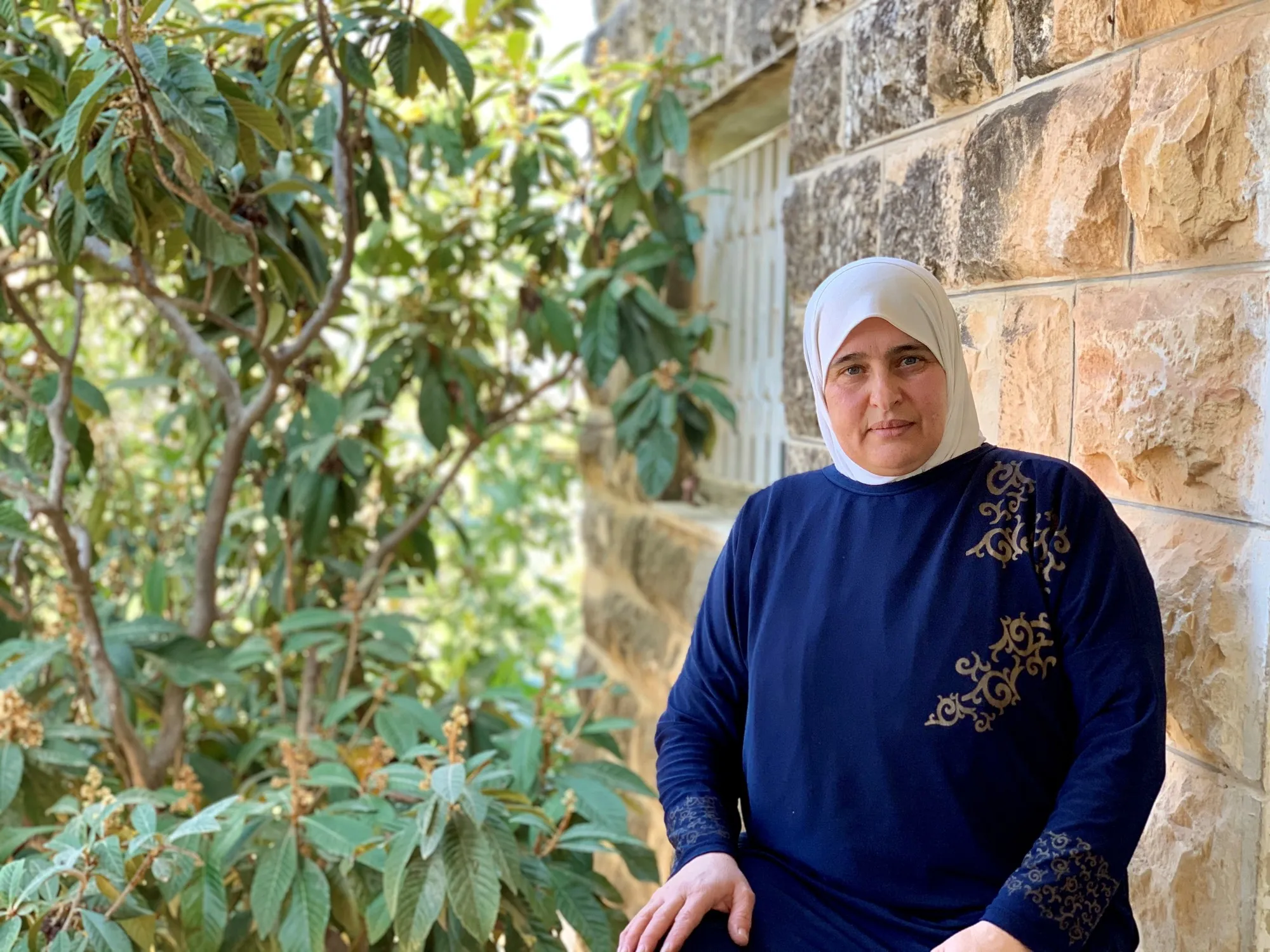Limitations to education are not my children’s only obstacle. Two years ago, my 15-year-old daughter Lina lost her eyesight. We were told she needed a surgery that would have cost me about $3,400 – a sum I could not afford. I sought other ways and got the contact information of a Syrian doctor who would allegedly charge less. He requested 1,000 Jordanian dinars ($1,400) and my son borrowed the money from his friend. I remember how heavily it was raining when he came and took the money from me near our home. That was the last time I saw him.
Soon after, I found out that the doctor was a swindler who had done similar tricks with several others. I tried calling him and contacting him many times, but to no avail.
I then sought help from CARE, who provided me with an urgent cash payment, referred me to a legal aid organization, which appointed a lawyer to help me get my money back, and referred my daughter to a medical aid organization to perform her surgery at no cost to us. Lina is doing better now and having regular check-ups to complete her treatment.
I also have uterine fibroids and a chronic migraine. I underwent two different surgeries. The health and school needs are the main reason we have not moved to live with my husband, who works as a farmer in Abu Dhabi in the UAE. Everything there is expensive – rent, education, healthcare. My husband had a better income before, but he developed heart disease a few years ago, and so his boss gives him less work, for a lower wage. Now, he cannot provide fully for the family either.
My oldest sons, Qusai, now 24, and Ahmed, 22, do any type of work they may find from time to time to help pay the rent and cover some of the family’s expenses. However, they don’t always find work.
We suffer in this house, especially in the winter. There is mold, insects, and even lizards inside. We painted the house and tried to fix some things, but it is not enough.
We built an entire life in Syria and it all ended up nowhere. Qusai still tries to pursue his education, but it is not working. If you ask me about hope, I will tell you that I have very little left.
Returning to Syria anytime soon is not an option. The moment that we return, my sons will be forced into military service. The lack of safety in our hometown remains a big problem. Every month we hear of new cases of people killed. It is supposedly calm, but there is no rule of law. No one knows why who is killed.
Some of my friends, who have returned to Syria, wish to leave again. My friend used to say, “the moment I return to Syria, I will kiss its soil.” Soon after she returned though, she realized how tough the situation there was and wished she could come back to Jordan.
I am happy and I feel like I’m home in Jordan. My neighbors treat me like their sister. They look after my children if I’m at the hospital or if I have an emergency. I was opposed to the idea of resettlement, because we are at least living among people of the same culture and religion and who speak the same language. But I see how my children are struggling and unable to build a future here. I see how they are unable to fulfill any of their dreams and that hurts me. If we immigrate, they will be able to continue with their education and build a future.

